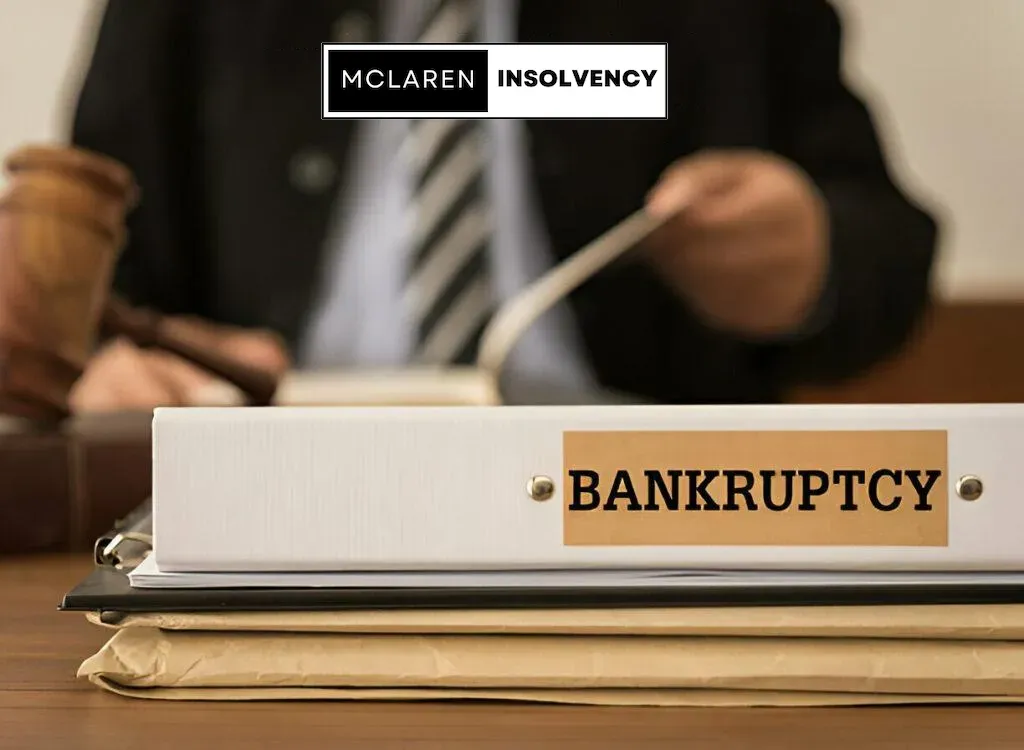How to liquidate your construction company in the UK
Construction is a major sector in the UK, contributing to both the national and regional economies, with many firms seeking to avoid compulsory liquidation by seeking early intervention. Construction slumps have a knock-on impact on other sectors such as manufacturing and transportation, thus construction executives must seek help early on to avoid compulsory liquidation.
Although general economic conditions in this industry have gotten better since the pandemic, construction firms continue to face significant issues, particularly when there is insufficient funding to expand and grow.
So, what are a few of the issues that UK’s construction industries face, and how may they affect business?
What are some of the issues facing the UK Construction Industry
Supply Chain Chaos
Complex building supply networks might leave the smallest players unable to address difficulties that arise farther up the chain, increasing the likelihood of insolvency and compulsory liquidation. Seeking liquidation and debt advice is essential in such scenarios.
Skilled labour shortages
A chronic dearth of qualified construction employees is limiting the sector’s capacity to complete building projects on time and within budget, as well as raising personnel costs. This increases the risk of the company becoming insolvent and needing to apply to the court for liquidation. Given the time it takes to completely train a construction worker, small and medium-sized firms (SMEs) may be disproportionately affected, particularly when having to close a limited company.
Late payments
Late payments are common in the construction industry, and it is critical that firms, particularly smaller suppliers, explore solutions such as alternative financing because bad debts and insufficient cash flow can swiftly lead to insolvency
How to save a construction business that is facing insolvency
When a corporation becomes insolvent, it might be feasible to save it and avoid liquidation. There are a variety of choices accessible in this regard, but as previously stated, it is critical to get assistance soon from a licensed insolvency practitioner.
For example, if a construction company is under constant pressure from creditors, it may be eligible to go into a company voluntary arrangement rather than facing compulsory liquidation. This allows time to assess the issue and make preparations for the future, including the appointment of a liquidator to manage the closure. But what if there is no prospect of rescue? It might be necessary to initiate compulsory liquidation, especially if a winding-up petition has been filed.
Insolvent Construction Firms and Creditors’ Voluntary Liquidation
Creditors are subsequently refunded as much as feasible, and the company’s name is removed from the Companies House registry by the appointed liquidator. To reduce creditor losses, company directors must quit operating when the company enters insolvency, and a licensed insolvency practitioner should be appointed to handle the liquidation process.
The CVL process
A meeting of shareholders is convened, and 75% (by value) must agree to approve a winding-up resolution.
A licensed insolvency practitioner is officially designated to liquidate the company, providing essential liquidation and debt advice.
The winding-up resolution is sent to Companies House and advertised in the Gazette
A creditors’ meeting is scheduled within 14 days of the resolution. This meeting must be advertised in the Gazette, according to statutory requirements.
At the creditors’ meeting, a Statement of Affairs is provided, which details the company’s financial status, aiding in the winding up petition. This will also be sent to the Companies House.
During the liquidation procedure, creditors’ interests take priority over those of directors, shareholders, and members, according to statutory guidelines. Directors must behave with integrity and give the IP with all necessary information to complete this process, to avoid the risk of the company becoming an insolvent company.
Solvent Construction Firms and Members’ Voluntary Liquidation
When a solvent construction firm needs to close, liquidation can be an effective solution. Members’ Voluntary Liquidation allows you to maximise profits from your business because distributions are treated as capital rather than income. Consulting with McLaren Insolvency Practitioners can help you navigate this process. A licensed insolvency practitioner can help manage this liquidation process, offering necessary liquidation and debt advice.
A shareholder’s tax burden can be reduced even further to an effective rate of 10% if they are eligible for Business Asset Disposal Relief (BADR), formerly known as Entrepreneurs Relief, when they choose to wind up the company. MVL is often appropriate for businesses with retained profits of £25,000 or greater, especially when a shareholder seeks to wind up the company.
The MVL process
Employ the services of a skilled insolvency practitioner to advise and supervise the process.
Hold a board meeting to examine voluntary liquidation as an option, particularly considering advice from HMRC.
The majority of directors sign a Declaration of Solvency, which confirms that the company can repay all of its debts within 12 months of the liquidation date. This ensures that the company name remains in good standing.
A Liquidator is chosen during an Extraordinary General Meeting with shareholders when a resolution is voted to wind up the firm if 75% of shareholders (by value) agree. The company may also need to apply to the court to finalise this decision.
The liquidator sells the company’s assets, settles all creditors in full, and allocates any remaining capital to owners.
McLaren Insolvency Practitioners offer the professional advise and skills required when a business is facing financial difficulties, as well as assistance to company directors in liquidating assets where necessary.
PREMIUM SERVICES
Our Services
Bounce Back Loans Assistance
If you're struggling with repayments or have questions about your Bounce Back Loan, we're here to help. Our experts will guide you through the process and explore options tailored to your specific circumstances.
VAT Debt Resolution
Unresolved VAT issues can be a significant burden. Our experienced team will work tirelessly to find the best solutions for your VAT-related challenges.
HMRC Debt Support
Dealing with HMRC debt demands can be daunting. Our experts will negotiate with HMRC on your behalf, helping you find manageable solutions and preventing further financial strain.
IR35 Compliance
Understanding and navigating IR35 regulations is crucial for contractors and businesses. We offer comprehensive guidance to ensure compliance, minimizing potential penalties and liabilities.
Winding Up Orders
Facing a winding-up order can be distressing. Our dedicated team will help you explore all available options, potentially saving your business and livelihood.
PREMIUM SERVICES
Our Services
Bounce Back Loans Assistance
If you're struggling with repayments or have questions about your Bounce Back Loan, we're here to help. Our experts will guide you through the process and explore options tailored to your specific circumstances.
VAT Debt Resolution
Unresolved VAT issues can be a significant burden. Our experienced team will work tirelessly to find the best solutions for your VAT-related challenges.
HMRC Debt Support
Dealing with HMRC debt demands can be daunting. Our experts will negotiate with HMRC on your behalf, helping you find manageable solutions and preventing further financial strain.
IR35 Compliance
Understanding and navigating IR35 regulations is crucial for contractors and businesses. We offer comprehensive guidance to ensure compliance, minimizing potential penalties and liabilities.
Winding Up Orders
Facing a winding-up order can be distressing. Our dedicated team will help you explore all available options, potentially saving your business and livelihood.
ABOUT US
Your Partner in Resolving Financial Challenges
Unlocking Financial Solutions for Businesses

HMRC Debt Assistance
HMRC debt can cause a significant strain on business finances. If ignored HMRC can often instigate winding up action. As a Director you should contact a licensed practitioner before this happens to ensure you are protected.

Bounce Back Loans Assistance
Navigating the complexities of government-backed loans, such as bounce back loans, can be overwhelming. Our experts are here to guide you through the process, helping you secure the financial assistance your business needs.

Why Choose McLaren Group?

Expertise
Our expert team offer director focused liquidation solutions. Helping with Bounce back loans, HMRC debts, supplier debts and much more. We understand the challenges many company directors have had since covid and provide tailored solutions to suit your situation.

Personalized Service
We believe in a client-centric approach. Every business is unique, and we tailor our services to meet your specific needs and goals.

Results-Driven Approach
We focus on delivering tangible results and will support you through the full process of closing your company. We offer a simplified director focused liquidation which will ensure your personal credit isn’t impacted.

Save Time and Resources
Our fully qualified team of Insolvency experts will help take the strain of creditor pressure away. Save you time & resources by contacting any creditors on your behalf and ensuring you get the right advice on closing your struggling company.
Transform Challenges into Opportunities with McLaren Group.
Get in touch with us now.
Embark on Your Financial Transformation Today
Don’t let financial challenges hold you back from your business goals. Reach out to McLaren Insolvency Practitioners Glasgow today to discuss your specific needs and discover how our comprehensive services can help when you are struggling with business debts
95%
90%
75%
Embark on Your Financial Transformation Today
Don’t let financial challenges hold you back from your business goals. Reach out to McLaren Insolvency Practitioners Glasgow today to discuss your specific needs and discover how our comprehensive services can help when you are struggling with business debts.
Office: 250 West George Street, Glasgow, G2 4QY
Call 0141 459 0636

© 2025 - McLaren Insolvency Practitioners | All rights reserved | Privacy Policy
ICO. Registration reference: ZB590513
Company Number: SC727432
George Dylan Lafferty, Gordon Neil McIntyre and Penny McCoull are authorised to act as Insolvency Practitioners in the United Kingdom by the Institute of Chartered Accountants of Scotland. Insolvency Practitioners are bound by the Insolvency Code of Ethics when carrying out professional work on insolvency appointments.







